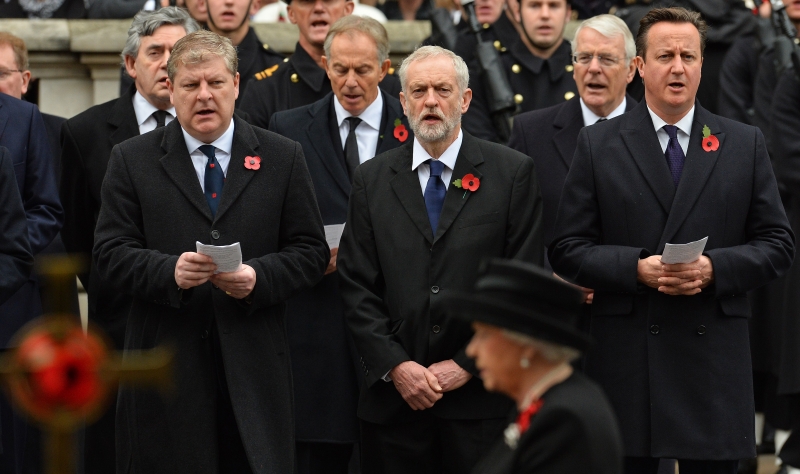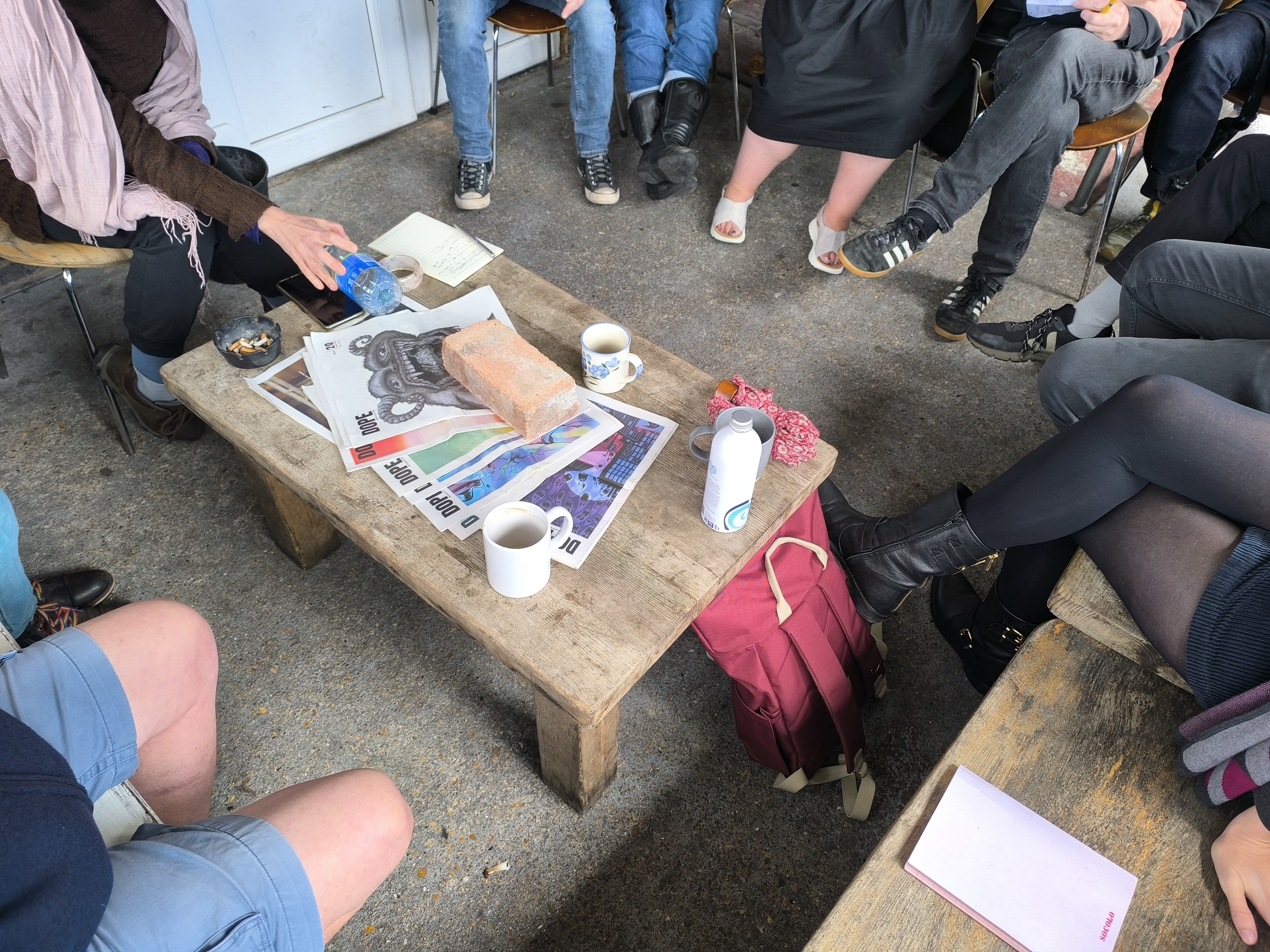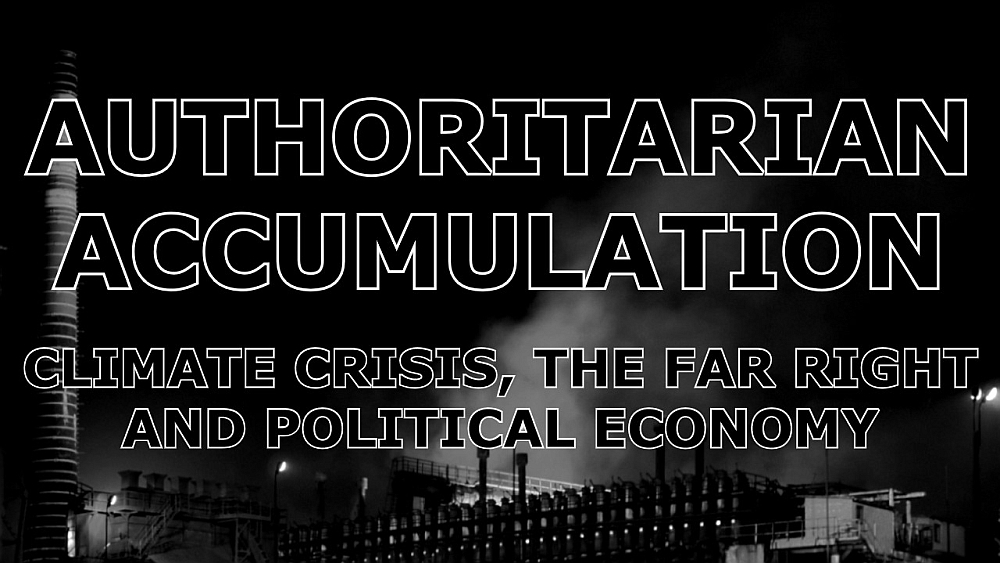This contribution to our series on the Labour Party has been written by London Plan C Member Nik Matheou.
The Terrain Transformed
There’s no denying the fact that Jeremy Corbyn’s Labour leadership has had a remarkable effect on what people believe politically possible from day one of his 2015 candidacy. Hundreds of thousands have joined the Labour Party and tens of thousands the Corbynite campaign group Momentum, the vast majority under 35. Most importantly, thousands have actually gone out organising. With unashamedly socialist rhetoric Corbyn’s team have caused a ground-shift in mainstream UK political discourse – embodied in the sight of the Leader of Her Majesty’s Most Loyal Opposition proclaiming the radical ’90s and ’00s alter-globalisation movement’s rallying cry, ‘Another World is Possible’, to a huge Glastonbury crowd.[1]
But beyond the liberal obsession with ‘changing the conversation’, Corbyn has energised millions who’ve grown up under New Labour’s technocratic neoliberalism and Tory austerity. Originating in his first leadership campaign, Momentum claims to be a vehicle to fight for wealth and power redistribution ‘from the few to the many’, transform Labour into ‘a more open, member-led party’, and promote ‘people-powered politics’, organising with communities across the country to ‘Bring together individuals and groups in our workplaces and communities to campaign and organise on the issues that matter to us.’ It thus aims to ensure the internal Labour hegemony of Corbyn’s aims and principles, many of which are broadly shared by all anti-capitalists. These principles have translated into some practical steps, though mostly events, electioneering, and manifestos, rather than social activism as such.[2] Still, Corbyn’s Labour and Momentum have substantively shifted the political terrain. There’s Momentum’s fringe festival The World Transformed running events across the country asking what the Brexit slogan ‘Take Back Control’ could mean beyond a code word for the same old elite-run nation state, as well as ceremonially inaugurating the Labour Left’s internal hegemony last month.[3] Then there’s the Labour manifesto from the last election, which proposed extending democracy to regional and local levels; mandatory collective bargaining and expanded worker rights, including a ‘right to own’ when companies are sold; national education and care services, and so on.
So why the caution? Much about Momentum in particular speaks to the ethics and politics of libertarian anti-capitalism: extending anti-hierarchical and direct-democratic practices into our workplaces and everyday lives, through self-organised (though very much not autonomous) political activism focused on building with and within our communities at the grassroots level. These ethics are reflected in Corbynite ideologue Paul Mason saying that Labour needs to become a ‘social movement’, even ‘the counter-power’, meaning it can’t be reducible to parliament or the membership as a whole, but must be part of a broader set of integrated campaigns to transform society. So it might just be a question of Momentum transforming Labour by actualising their principles in practical political ethics. But here’s the problem: Labour can’t be that, and Momentum’s severely limited by Labour’s parliamentary project, all because of one simple reason – managing the capitalist nation state.
On Capitalism and the Nation State (Again)
The brick wall that social democratic or ‘democratic socialist’ projects always hit is that there’s no way to top-down legislate away capitalism or the state.[4] The nation state came together under capitalism and is inextricable from capitalist class interests, as a general rule only intervening to assure the system’s overall reproduction. It maintains nationalism’s ideological hegemony, both the aggressive chauvinism we all recognise, as well as more pervasive, naturalising, and banal forms, like the insidious common sense that ‘being English/Scottish/Whatever’ can explain someone’s personality. Most importantly, the nation state as State is a hierarchical structure that can only exist and reproduce itself through exploitative domination. Such criticisms might unfairly assume that most Labour and Momentum activists actually realise that the nation state is as much an enemy as capitalism, but, bluntly, this is a cold, hard lesson that much of the Left seems intent on never learning.
Movements that reduce themselves to a state project are quickly disciplined by the world system of capitalist exploitation and domination. If global capital allowed a social democratic project to take state power it would have to play by these rules, one by one compromising every principle and policy under the threat of bureaucratic (and military) coups and capital flight, until at best it’s left managing capitalism, racist borders, and indulging common sense nationalism, while opportunistically grabbing small reforms painted as big victories. Should Labour take power that’ll be the fate of all Corbyn and Momentum’s laudable principles and aims, the most radical dropped the quicker, the ones that don’t change the status quo in the slightest (like job investment and nationalising public transport) celebrated as if capitalism had been defeated.
This is the age-old limitation of the parliamentary Left, and it’s an unavoidable contradiction that’s already reared its ugly head in Corbyn’s comments about EU immigration – and on immigration his manifesto was far harsher than Miliband’s, racist mugs notwithstanding. Control of labour flows is essential for capitalism to work, without militarised borders it simply wouldn’t, and by taking over the nation state any political project is necessarily disciplined by these dynamics. Post-war social democracy came after 100 years of the radical democratic and workers’ movement, the threat of Soviet ‘Communism’, and two world wars.[5] The NHS and welfare state didn’t arrive in 1945 from nothing – and still social democracy in itself provided no threat to capitalism as a political-economic system, didn’t even cover everyone through systemic racism and sexism, and collapsed within a few years of people demanding inclusion and the overturning of capitalism in the late ’60s.
Now all of this isn’t to tell Labour and Momentum members to quit and disengage. Free association is a deeply cherished ethic of the autonomous and libertarian Left: you make your own decisions about which organisations you work with, and retain all rights to come and go as you please. Most new members, like me, are seeing for the first time a mainstream political project talking seriously about building a free and equal society – and, most importantly, it’s now commonplace even for class enemies to claim that a Corbyn Labour government is a matter of when not if. Labour has ‘the momentum’ and it seems churlish to push a strong abstentionist line. Nor am I going to claim that state reforms change nothing, or that new possibilities don’t open up through regime change – they can and they do, the ’60s and ’70s revolutionary moment happened because social democracy showed glimpses of a post-scarcity world where the necessities of social reproduction were assured.
But we’re in concretely different conditions now, and governments can only create more or less space for radical transformation – put slightly differently, there are no Leftist governments, only governments that open up potentials for the Left.[6] It’s up to us to realise those potentials by autonomously and antagonistically organising to make the new society in the shell of the old. By themselves parliamentary socialist projects are doomed to failure, even the most idealised of past ‘transformative governments’, and with that inevitable doom comes waves of understandable disillusion. The pessimistic reading and optimistic call would be for enough extra-parliamentary counter-power to force as much new space as possible in the first two years of a Corbyn government, before structural imperatives inherent in the capitalist nation state close that window of opportunity.[7] Because that’s the real danger: that all this hope and potential is wasted in organising for a Labour government instead of building from the grassroots, anaesthetised by the delirium of achieving this goal, and lost with whatever compromises, coups, and failures follow.
Beyond Another False Choice
So if I’m not calling for either abstentionism (total disengagement) or a Labour turn (a reduction of our politics and organisations to that project),[8] then what’s the positive proposal for radical anti-capitalists?[9] Most important is the need for broader understanding of the distinction between statecraft and politics, and greater consciousness of when we engage in one or the other in our everyday lives.[10] Statecraft is inherently beyond the ability of movements to control: it rests on the alienation of the social realm’s power-to into the political realm’s power-over – the transformation of horizontal empowerment into vertical domination through state institutions.[11] So whenever we engage in national elections it is a definitional practice of statecraft, not politics. The ballot box, claimed by liberal ideology to demonstrate citizen power, is instead the moment when we come together as a mass of associated actors to collectively alienate our potential empowerment. It constitutes our dominators in a claimed-to-be autonomy of the political, and fetishizes this act in the ideological figure of the ‘national will’ that more-or-less guarantees nation-state hegemony and commoners’ spontaneous consent.[12]
But, as I’ve already noted above, it would be ridiculous to claim that statecraft is irrelevant or possible to ignore, especially in this conjuncture when a state project is objectively opening new political space. Taken to purist extremes abstentionism leads either to blinkered insistence on one vehicle as the motor of change (the vanguard party, the mythic general strike, self-appointed guerrillas, etc.),[13] or a voluntarist belief in the ability to throw off hegemonic common sense (i.e., we just need to convince enough people that voting is self-alienation). Purist abstentionism can also fall into the trap of seeing the state as an external force that was imposed and can be isolated, rather than itself a configuration of particularly arranged social relations which, although impossible to centrally command for revolutionary purposes, can be intervened in.
A useful concept here is the understanding of social transformation summed up in the term ‘overdetermination’ – the idea that an event (say, the Russian Revolution) is brought about by a multitude of determinations, any number of which might have been sufficient in principle, but in practice all of which acted together as a complex, contradictory whole to produce an overdetermined moment of change. Social transformation becomes then not the product of one determination or antagonism (e.g., either struggles in value production or electoralism), nor even a set of interrelated ones (to extend the example, trade unions in combination with a parliamentary party), but a whole ensemble of sometimes disparate sometimes interconnected struggles, antagonisms and contradictions, each determining the other in often unpredictable and irreducible ways. Imagined thus statecraft becomes one potential determination that must be part of a multitudinous overdetermination in order to produce a radical transformation – and, of course, only as long as we remember centralising states’ inherent limitations (their basic function of assuring systemic reproduction through exploitative domination), maintain the distinction between statecraft and politics, and understand our role as single or associated actors engaging in these practices.[14]
Because that’s really the crux: to think of ourselves as we are, not some revolutionary ‘royal We’,[15] a unit able to act at statecraft’s inhuman scale, but single actors sometimes associated with many others and thereby able to create empowering social forms, but always existing at the human scale – the only scale for real politics. Seeing ourselves as social beings living our everyday lives, the question of ‘electoralism or not’ is transformed by a refusal of statecraft’s autonomy of the political.[16] Instead the question becomes: as radicals who want to produce a transformative overdetermination, where are our energies best spent? In a conjuncture when so many are energetically engaging with a state project, are they needed in that single determination, and will that project be more or less able to open new space if we reduce ourselves to it? It seems clear to me that our energies as radicals – and particularly revolutionary organisations – won’t be best spent in joining the Labour turn, they’re simply not needed and only endanger our organisations’ autonomous reproduction.[17] But neither will they be well spent berating those who are. Rather, in this moment of new horizons in the politically possible, we need to demonstrate the vitality of libertarian anti-capitalism, and the necessity of building autonomous political infrastructures that empower new, expanded forms of struggle.[18]
Because if really we want to take back control with people-powered politics anchored in our workplaces and communities, then there is no electoral alternative to patiently building solidarity networks among the oppressed, engaging in direct action and radical unionism, and rooting our politics in our locales by finding out what radical spaces and movements already exist and forming alliances, learning and teaching in turn. Nor is there an electoral shortcut to the patient building of revolutionary organisations that can help articulate these movements’ common radical politics, functioning as their institutional memories, nodal points where one network meets another, and occasional tactical leaders in specific moments of radical intervention. We need new, effective forms of counter-power that make sense in our conditions, and the long work of finding them cannot wait.[19] Some experiments of careful engagement with municipal-level statecraft – attempting to hack these social relations and rearrange them into real politics – have shown promise in Spain, Italy, Greece and elsewhere. But these considered engagements with statecraft’s human scale are only made possible by effective counter-power expressed in direct-democratic assemblies: open, egalitarian, consensus-based and face-to-face meetings for locals, activists, and workers to come together and form radical democratic communities, autonomously institutionalising existing and future struggles, and empowering themselves for immediate action and eventual emancipation. Most importantly, this counter-power is directed beyond both capital and the nation state, both the public and the private, and towards the common, a pressing necessity entirely lost in the statist Labour turn.[20]
Flashes of such organising are appearing in the UK and many inspiring struggles have emerged, but currently they are embryonic and weak, especially compared to the radical democratic and workers’ movement of old. But this is the situation, there’s no hiding from the old movement’s historic defeat, it’s now up to us as single and associated radicals to take up the challenge and find new, durable forms of counter-power.[21] I sometimes imagine that we’re like the soon-to-be Chartists of the early 1830s, with flashes of struggle and moments of inspiration in the recent past and all around, but yet to find the organisational and institutional forms that would engender the great cycle of struggles finally defeated by neoliberal counter-revolution. The good news is that, even as neoliberalism has enforced its hegemony to disastrous effect, we’ve experienced a passive revolution in social consciousness, with the terrain of struggle radically shifted by feminist, LGBTQ+, anti-racist, and many other liberation movements derisively labelled ‘identity politics’ by pseudo-Left brocialists. Angela Davis said at London’s Women of the World festival in March that she had never seen such a broad mandate for resistance, even in the revolutionary heights of the late 60s and early 70s. It might be liberal as f*** at the moment, but that doesn’t negate the potential for a far broader, far more inclusive, properly intersectional, and, therefore, ultimately more liberatory movement to abolish the present state of things.
But this potential will never be realised if we insist on reducing all our politics to statecraft. Unless counter-power is autonomous and anchored in common institutions both beyond and against the state any radical gains will once again be recuperated, co-opted, and lost. Only with autonomous counter-power anchored in the common might statecraft open potentials for a transformative overdetermination. Even then it’ll only happen if there exists enough autonomous counter-power to force a radical democratic program that can truly redistribute ‘from the many to the few’. So choose as individual radicals whether it’s possible to maintain a statecraft/politics distinction while participating in Labour and/or Momentum activism – it certainly has a role in any eventual overdetermination. But don’t fall into the trap of eliding statecraft with politics, and so lose sight of the fundamental difference between the roles of state projects and autonomous revolutionary organisations.[22] Because if we really want to make another possible world, where the free development of each depends on the free development of all and everything is in common for everyone, then electoral interventions can only be one, subordinate tactic in a diversity of struggles to dismantle capitalist statecraft from bottom to top.
[1] Examples of the incredible shift in discourse and the role of the autonomous and libertarian Left are brought out in the first article in the series, initial thoughts on The World Transformed, as well as Tabitha Bast’s article.
[2] Bert Russell’s article details the limitations that Labour’s electoral project places on Momentum.
[3] The initial thoughts on TWT show the extent to which the Labour Left has ‘arrived’, with less and less distinction between TWT and conference proper.
[4] This problem is either unaddressed or implicitly denied in the thoughts on TWT and Tabitha’s piece. However much the Labour Party shifts, it cannot go beyond the disciplining dynamics of taking over the capitalist state, which operates on the sole logic to reproduce itself and capitalism. As Kai’s piece puts it, they’re ‘forgetting that the form of social democracy, let alone its content, is structured to negate their [the radical left’s] influence.’
[5] The piece by Camille Barbagallo, Nicholas Beuret, and David Harvie also emphasises this historical lesson about the necessary conditions for old social democracy, and their fundamental absence in our conjuncture.
[6] The same conclusion is reached in Bert’s piece, ‘we have to realize that a Labour party can never ‘be’ the movement – it can (at best) serve to facilitate or open spaces within which more radically democratic organisations of society can occur.’
[7] Bert’s piece presents a similar call by shifting focus onto what ‘we’ would actually want to achieve under a Labour government, and what social forces are required to realise any eventual possibilities.
[8] It must be said that neither the article reflecting on TWT nor Tabitha’s argue for a reduction of our politics or organisations as such. Still, it’s difficult to see what exactly is being proposed by the ‘organisation of social movements in, against and beyond the Labour Party’, or ‘we need to get involved with these initiatives, argue our case for something larger than electoralism alone and get organised within these forms’, apart from a greater or lesser degree of reduction. Similarly the characterisation of an autonomist position as ‘Left separatism’ implies that radical politics and statecraft can somehow be united without recuperation and co-optation, when in practice this is simply impossible, social movements and statecraft have fundamentally different roles and organisational imperatives. There is no leaving ‘communication, exit strategies and back channels open’, if we reduce ourselves as an organisation to a state project in any way (as opposed to single individuals getting involved), then the social relations that make up our organisation will be fundamentally disciplined and transformed by that project’s needs.
[9] I emphasise this need for positive proposals off the back of Kai’s piece, which rightly insists we ‘follow the negative moment of critique with an affirmative moment of commitment’.
[10] This distinction is lost in Tabitha’s assertion that Corbyn’s Labour ‘isn’t just Plan B it’s a whole new formation’. Regardless of any specific policies or shifts in particular party structures, it is and will remain ‘Plan B’ because it is a state project, and is necessarily disciplined by those dynamics.
[11] It could be argued that these assertions, like those above on the nation state, are part of the ritual incantations of past critiques attacked in Kai’s article. But no ‘changes in the social fabric’ have meant that we’ve yet transcended the general nature of centralising states, or that of the specific nation states we live in. Of course this isn’t to say that we should accept the purism that older radical critiques argued for, we can and should find other creative ways to intervene, but the basic characterisations remain sound.
[12] Understanding elections in this manner radically shifts the significance of the emphasis on electoral results in Tabitha’s article. The fact that young people and the libertarian Left played a strong role in the general election’s relative success is ultimately far from the real promise of this conjuncture, since elections are a fundamental alienation of empowerment, and over-belief in electoralism is actively damaging to building counter-power – albeit that, contradictorily, electoral interventions can open up new political space as we’ve seen.
[13] Kai’s article also brings out these tendencies in what is termed there the ‘Critiquer-in-Chief’ approach.
[14] A similar understanding of differing roles in producing an overall change is termed ‘Multi-directional power’ in Bert’s article.
[15] As Kai’s article states, we can’t ‘assume a non-existent ‘We’ capable of conditioning a radical politics.’
[16] Kai’s piece similarly emphasises the need to stop posing the question ‘should we engage with the Labour Party’, as well as the inability to transmute the state’s form against itself.
[17] As comrades from the Anarchist Federation recently pointed out in an open letter to Plan C, this dynamic was the end of Big Flame in the ’80s – in many ways a predecessor organisation in their pluralism, focus on social reproduction and feminist struggles, and strong autonomist element. The article reflecting on TWT proposed that there are lessons to be learnt here, and it would seem clear that the most significant is to maintain organisational autonomy, even as members may involve themselves in Labour as individuals.
[18] The need for political infrastructure is brought out strongly in Bert’s piece.
[19] The absence of working strategies and tactics, and the necessity of finding new ones, is a desperate problem detailed in Camille, Nicholas and David’s piece. In similar vein Bert’s article states ‘A real crisis we are facing is that the social forces required to achieve any of this simply doesn’t exist.’ I’d also disagree with Kai’s piece here that ‘counter-power’ ‘always implies a reactionary stance to power proper’, instead we need to think of resistance as prior to power, its horizontal empowering form defining beforehand the necessary shape of vertical domination.
[20] The need for something beyond the public, beyond ‘Plan B’, and the necessity of the common, is detailed in Kai’s article.
[21] The importance of this historic defeat is strongly (and for me very much rightly) emphasised in Camille, Nicholas, and David’s piece.
[22] Ultimately this is the main counter-point to the arguments in the reflections on TWT and Tabitha’s piece: they’re quite right to emphasise the remarkable new conjuncture we’re in, and demonstrate clearly (perhaps with some slight exaggeration) the role of the autonomous and libertarian Left in this shift, but lose sight of our particular function in developing the situation further towards a radical transformation. It is really an either/or, statecraft or politics, and if we want to build the latter then we need to maintain strong organisational autonomy from any state project, while obviously individuals are free to make their own choices over how they spend their energies.





